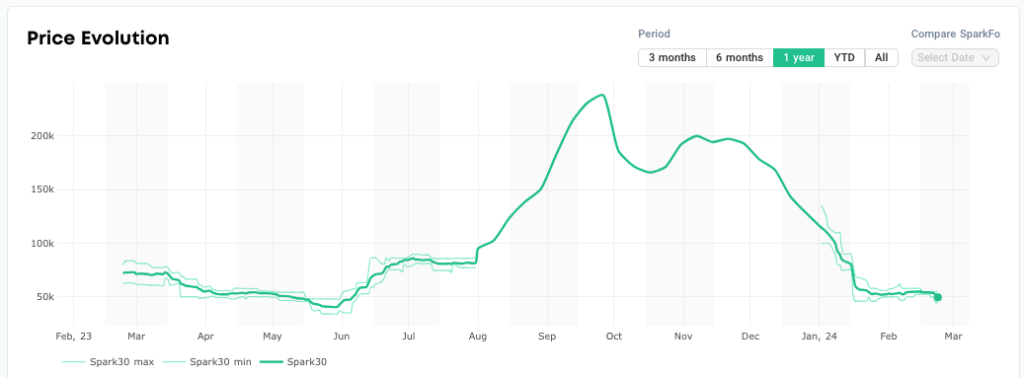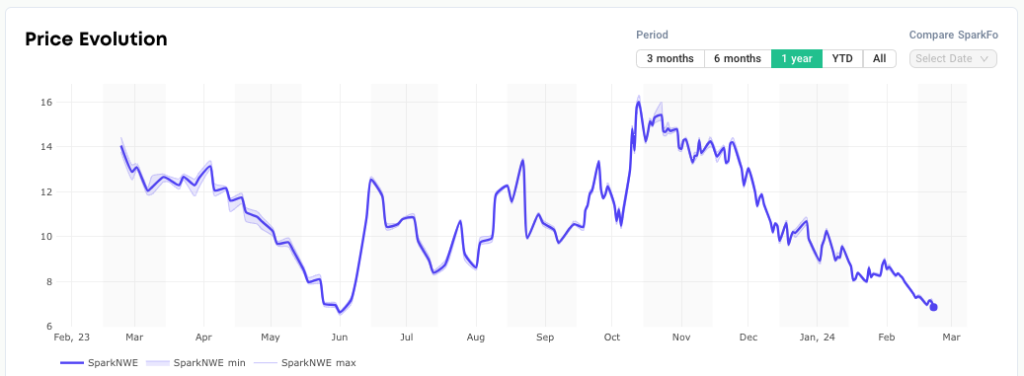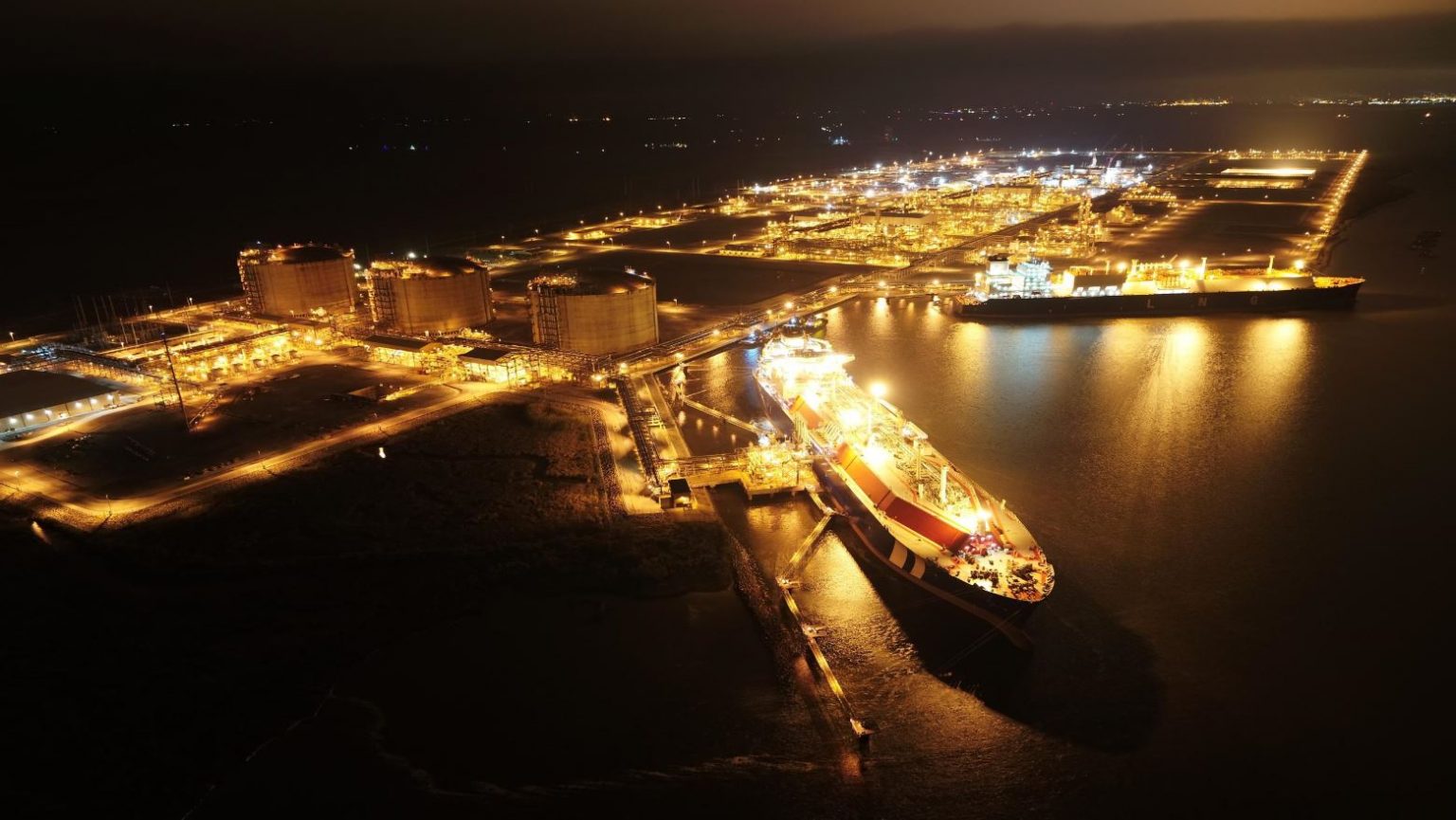Atlantic spot LNG freight rates dropped below $50,000 per day this week, while European and Asian prices also decreased compared to the week before.
Last week, charter rates were almost flat after they rose in the week before for the first time since mid-November 2023.
“The Spark30S Atlantic spot 174,000 cbm 2 Stroke LNG freight rate fell to the lowest level in 8 months, falling $4,750 this week to close at $49,750 per day as the spot fixing window moves into the seasonally softer Q2 period,” Henry Bennett, Spark’s COO, told LNG Prime on Friday.
He said the Spark25S Pacific spot rate was almost unchanged on the week at $58,250 per day.

LNG carriers are still avoiding the Suez Canal due to the situation in the Red Sea.
Since January, LNG carriers, including Qatari vessels delivering LNG shipments to Europe, are favoring the Cape of Good Hope for safer passage.
Kpler said previously that the Suez Canal has witnessed no LNG transits since January 17.
On the other hand, due to a drought situation impacting the Panama Canal, LNG transits through the waterway keep declining.
Official data shows that LNG transits dropped to 326 in fiscal 2023 from 374 in 2022 and 537 in 2021.
European and Asian prices decline
In Europe, the SparkNWE DES LNG front month dropped compared to the last week.
The NWE DES LNG for March delivery was assessed last week at $7.339/MMBtu and at a $0.535/MMBtu discount to the TTF.
“The SparkNWE DES LNG price is hovering just above the low from June 2023 and is sitting at $6.858/MMBtu, down $0.481 week on week,” Bennet said.

Levels of gas in storages in Europe remain high for this time of the year due to mild weather.
Data by Gas Infrastructure Europe (GIE) shows that gas storages in the EU were 64.69 percent full on February 22. Gas storages were 65.94 percent full on February 14.
This week, JKM, the price for LNG cargoes delivered to Northeast Asia, dropped when compared to the last week, according to Platts data.
JKM for April settled at $8.155/MMBtu on Thursday.
State-run Japan Organization for Metals and Energy Security (JOGMEC) said in a report earlier this week that the JKM decreased due to sufficient supply and high inventory.
METI previously said that Japan’s LNG inventories for power generation as of February 18 stood at 2.13 million tonnes, up from 2.05 million tonnes in the previous week.

